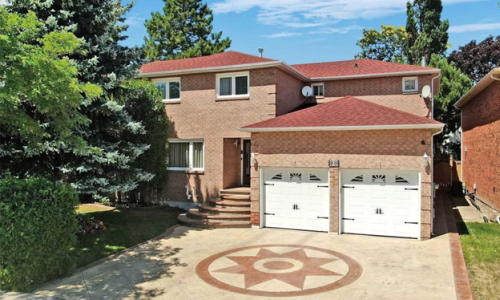
The primary goal of most people who purchase real estate as an investment is to profit. However, there are times when you may purchase a house without fully examining all elements and estimating the whole cost. And if you do this, you might not receive the results you want, or worse, you might lose money.
Here are five pitfalls to avoid when investing in real estate to ensure you don’t lose money when selling the home or wind up with an illiquid investment.

1. You have no idea what your credit score is.
When you apply for a loan to purchase a home, your lender will look into your credit history. According to Adhil Shetty, CEO of BankBazaar.com, “Any issues with your credit history could result in a loan application being denied or granted but with a hefty interest rate. Borrowers with a credit score of 750 or higher often receive the greatest loan offers. They are entitled to the lowest prices.” Take a few minutes to check your credit score online before applying for a loan.
2. Failure to consider the whole cost of a real estate investment
When investing in real estate, you must consider the whole cost of ownership. At a basic price of Rs 100, for example, additional housing fees such as GST, registration, stamp tax, brokerage, furnishing, borrowing costs, and so on can easily push the total bill to Rs 120 or Rs 130. According to Shetty, “You’ll have to pay 5% GST on an under-construction property, as well as 5-7% on registration and stamp duty, depending on your state’s regulations. It’s possible that furnishing the house will add another 5% to the cost. You may easily be looking at 15% of your base price. If the total cost is Rs 1 crore, these additional expenditures will cost Rs 15 lakh.”
According to Shetty, assuming a base price of Rs 100 for resale property in Delhi, the additional charges for stamp duty and registration may be Rs 7. Aside from that, you may have to pay a fee for borrowing costs (processing fees and MOD charges), which could be as high as Rs 0.10, or a brokerage price of up to Rs 1. Assuming the house is unfurnished, add Rs 3-5 for furnishing costs in most circumstances; however, as this is a matter of taste and budget, costs may vary greatly from one case to the next.
Furthermore, a bank will normally fund 75% of a high-value loan and up to 90% of a low-value loan. You are responsible for the rest. As a result, in most circumstances, you’ll need at least 20-25 percent of your budget in cash on hand, according to Shetty.
3. Impulsive purchases
ANAROCK Property Consultants Vice-Chairman Santhosh Kumar stated, “Before a buyer’s search can even begin to be complete, he or she should have seen at least ten houses. Impulse buying can occur when a person lacks the ability to resist sales pitches or is enticed by freebies that have nothing to do with the property’s value. Frequently, an unethical broker motivated solely by the commission will play a role in a client purchasing an improper home.”
4. Failure to complete one’s studies and exercise due diligence
Successful property acquisition is always the product of a thorough personal investigation into a variety of factors. Aside from the obvious considerations of price and location, the buyer should consider how much space he or she will require in the future, whether the area’s infrastructure will improve, whether the property is currently in litigation or otherwise legally problematic, and who the seller is. “When it comes to developers, going with well-known names is a great method to reduce the risk. Similarly, a buyer should examine the neighborhood infrastructure to determine whether it is adequate for the family’s needs, what pricing trends have been in the last five years, and whether the necessary facilities are nearby “Kumar stated his opinion.
5. There is no comparison to other types of investment.
Investing in financial instruments such as mutual funds, small savings, or equities is considerably easier and far cheaper as a pure investment. Financial investing has very low costs and obstacles to entry. Unlike actual properties, where maintenance costs and property taxes must be paid, there are no costs associated with managing your investments, with the exception of modest charges such as Demat annual fees, brokerage, and the expense ratio in the case of mutual funds. It’s also a lot less difficult to wriggle out of financial commitments. When you require liquidity, you can partially liquidate your financial investments. You can’t, however, part-liquidate a property.




